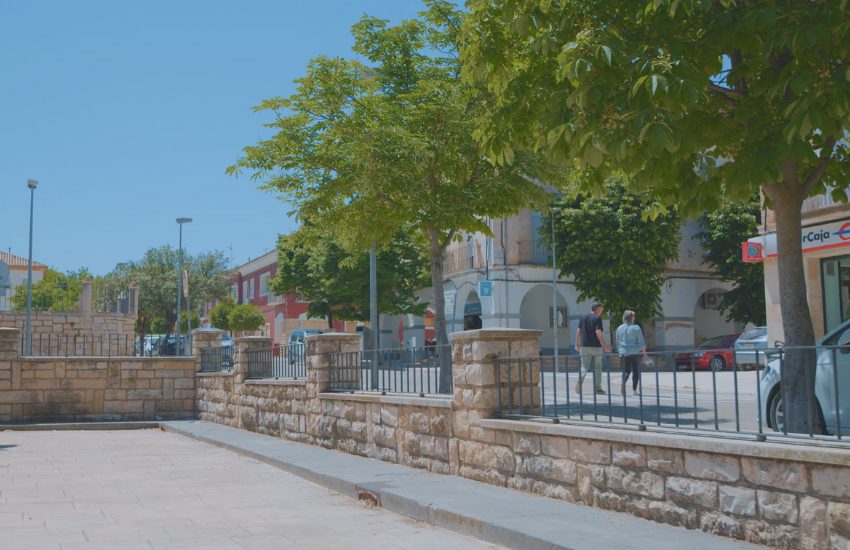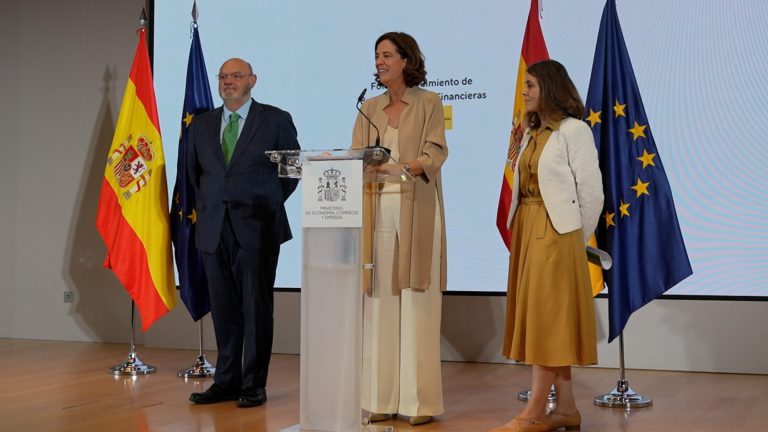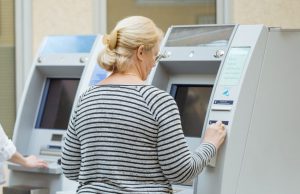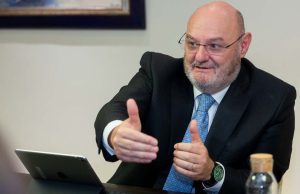Belchite has a grocery store where they sell food and dispense money. It is not that they are giving it away, it is that, thanks to cashback, a retailer can act as an ATM, which is yet another way in which banks are working to guarantee access to cash in rural areas of Spain.
In Belchite, the Old Town, whose name probably rings a bell from the battle of the same name that destroyed it during the Civil War, there are no residents left. The last one left in the 1960s. But in the new one, there are residents. As many as 1,540, according to the most recent data from the National Statistics Institute.
Belchite is Belchite, in Zaragoza; but it could be any town in rural Spain, with the accent of Aragón, Castilla y León, Extremadura or La Rioja, where the population is decreasing or not increasing, but where its average age does increase, with all the consequences that this entails.
The fact is that basic services are decreasing with the fall in the number of inhabitants, and the difficulty of accessing them increases for the residents of these towns with each passing year. Not getting along too well with technology and an over-reliance on those cars that they no longer find prudent to drive does not help. Access to cash, which is not even an issue in urban areas, is one of those services that are affected by the closure of bank branches.
It is said that necessity sharpens the wit and that is what has happened to CECA's banks and savings banks (CaixaBank, Kutxabank and Cajasur Banco, Abanca, Unicaja Banco, Ibercaja Banco, Caixa Ontinyent, Colonya Pollença and Cecabank) which, aware of the importance of financial inclusion in economic growth and development, have sought innovative formulas to continue to be present in rural areas.
"Cash continues to be the main means of payment and, for this reason, banks are implementing innovative solutions in order to continue to guarantee access to cash, especially in those areas where there are fewer branches", explains Alberto Aza, spokesperson for CECA.
This is how the ofibus service of CECA's member entities was conceived, mobile branches that travel by bus to rural municipalities, enabling their inhabitants to withdraw and deposit cash and pay taxes. This service currently has 20 ofibuses in Spain, serving a population of 440,000 people spread over almost 500 municipalities.
Proximity, person-to-person contact and commitment to the territories of the emptied Spain in which financial institutions want to continue to be present thanks to their originality and innovative solutions. However, using the traditional channels, those that people, especially those of a certain age, trust.
"One of these solutions is the cash service that banks offer customers at post offices as an alternative to ATMs", says Aza. This refers to Correos Cash, an initiative that allows users to make cash withdrawals from their branches or with home deliveries. Using it is as simple as requesting a withdrawal via the bank's application. Then, it will be up to the bank itself to take the necessary steps to request the immediate transfer with collection at the post office or the immediate home delivery. With the dispatch prepared, the mail carrier will deliver the cash and the receipt of the transaction to the customer's home.
Currently, Correos has 4,675 customer service points (2,393 offices and 2,282 rural service points) and its mail carriers can deliver money to any address in Spain. And it continues because the CECA entities are putting other formulas on the table. "The other option that guarantees access to cash is the cashback solution", says Aza.
Just ten minutes from the town is another town with an immense past and the birthplace of the universal Spanish painter Francisco de Goya, Fuendetodos. Another scenario where residents have access to cash thanks to these banking solutions. An example of this can be found in Montse's food shop, where requests for special cuts of meat (the famous "ternasco" and, of course, "longanizas"), pieces of fruit or cheese wedges alternate with requests for take-away money. This is effectively what is known as cashback, the use of a commercial establishment to withdraw cash.
Thanks to this system, which is already used in countries such as the United Kingdom and the United States, customers can pay more than the amount of their purchase by card and receive the difference in cash. Cashback is an initiative that is being launched in collaboration with all types of retailers, offering a wide range of possibilities to continue advancing towards financial inclusion in what is known as the emptied Spain. In addition, it offers almost the same flexibility and freedom as an ATM. What is clear is that "with these solutions the sector is once again displaying its firm commitment to provide access to financial services, especially in rural areas".













